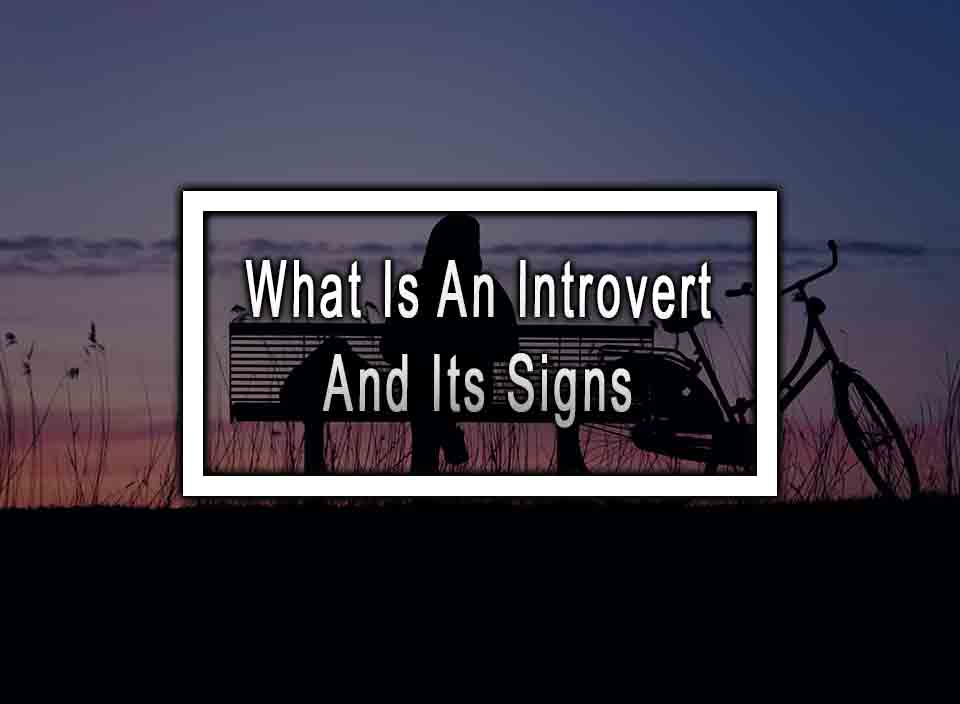Table of Contents
ToggleWhat is an Introvert?
With the increasing attention given to introversion in recent years, it’s a question that’s been on many people’s minds. Introverts are often seen as mysterious figures, and many people don’t quite understand what the term means. The truth is, introverts are just different types of people, not better or worse than extroverts, but simply different. In this article, we’ll explore what is an Introvert, what the signs of an introvert are, and how introverted individuals can thrive in a world that often doesn’t seem to understand them.
What is an Introvert? Put simply, introverts are people who have a preference for spending time alone or in smaller, more intimate settings. They find social interactions to be draining and tend to feel most energized and recharged when they have some time alone to recharge their batteries. This doesn’t necessarily mean that introverts are shy or socially awkward, although many introverted people may have those traits as well.
One of the most common misconceptions about introverts is that they are inherently antisocial or that they don’t like people. This couldn’t be further from the truth. Most introverts enjoy the company of others, but they simply prefer to socialize in smaller groups and tend to feel uncomfortable in large, noisy crowds. They may enjoy a quiet dinner party with close friends, but would likely find a night out at a loud, crowded bar to be overwhelming.
Signs of an Introvert
So how can you tell if someone is an introvert? Here are a few signs to look for:
- They prefer solitude: As we’ve discussed, introverts tend to feel most comfortable and energized when they have some alone time to recharge. If you know someone who frequently turns down invitations to social events or prefers to spend time alone rather than with others, you may be an introvert.
- They are great listeners: Introverts tend to be excellent listeners, often preferring to hear what others have to say rather than dominating the conversation themselves. They may be quieter than their extroverted peers in social situations, but this doesn’t mean that they’re not engaged or interested in what’s happening around them.
- They are introspective: Because introverts spend so much time alone, they often have a rich inner life. They may be more introspective and reflective than their extroverted counterparts and may enjoy activities like writing or journaling as a way of processing their thoughts and feelings.
- They dislike small talk: One hallmark of introversion is a dislike of small talk or idle chit-chat. Introverts tend to prefer deeper, more meaningful conversations and may find surface-level conversations to be tedious or unfulfilling.
How Can Introverts Thrive?
While introverts can certainly face challenges in a world that often seems to prioritize extroversion, there are ways for introverts to thrive in their personal and professional lives. Here are a few tips for introverts looking to harness their strengths and capitalize on their unique talents:
- Find your tribe: One of the keys to thriving as an introvert is to find people who understand and appreciate your personality. Seek out groups or organizations that share your interests or values, and don’t be afraid to connect with like-minded individuals online.
- Set boundaries: Introverts tend to be people-pleasers, often sacrificing their own needs for the sake of others. But setting boundaries and learning to say “no” when necessary is essential to preserving your energy and avoiding burnout.
- Embrace your strengths: Introverts have many strengths, including excellent listening skills, deep thinking, and a knack for creativity. Rather than trying to fit into an extroverted mold, embrace these strengths and find ways to use them to your advantage.
- Advocate for yourself: Finally, it’s important for introverts to advocate for themselves in social and professional situations. As an introvert, you may need to communicate your needs and preferences more assertively than others but don’t be afraid to do so. By speaking up for yourself, you can ensure that you’re able to thrive in the environments that matter most to you.
Conclusion
So what is an introvert?? At the end of the day, introversion is simply a personality trait, not a deficiency or a flaw. Introverts have unique strengths and talents that should be celebrated, not denigrated. By embracing your introverted nature and finding ways to thrive in a world that often seems geared towards extroverts, you can lead a fulfilling and successful life, one that’s true to who you are at your core.
Introvert FAQ
Here are the most common questions about what is an introvert.
Are introverts shy or anti-social?
No. Shyness and anti-social behavior are separate from introversion. Some introverts may be shy or struggle in social situations, but introversion itself is not a synonym for these things.
Do introverts hate socializing?
No. Introverts can enjoy socializing and may even have a close circle of friends, but they may prefer to socialize in smaller groups or in more intimate settings.
Is it bad to be an introvert?
No. Introversion is a personality trait that is neither good nor bad. It is simply one way of experiencing the world and relating to others. It has its own advantages and disadvantages, just like extroversion.
Can you be both an introvert and an extrovert?
No. While some people may exhibit traits of both introversion and extroversion, the terms refer to two distinct personality types. However, some introverts may learn how to “act” like an extrovert in certain situations or social contexts.
Can introverts change their personality?
While it is difficult to change one’s fundamental personality type, introverts can learn how to navigate social situations more comfortably and develop interpersonal skills through practice and effort.
How should I interact with an introvert?
Introverts tend to enjoy deeper, more meaningful conversations and may prefer one-on-one interactions or small, intimate settings. It’s important to respect an introvert’s need for alone time and not pressure them into more social situations than they are comfortable with.
More like this: 7 Ozempic Side Effects: It Is Bad To Over Use Ozempic












